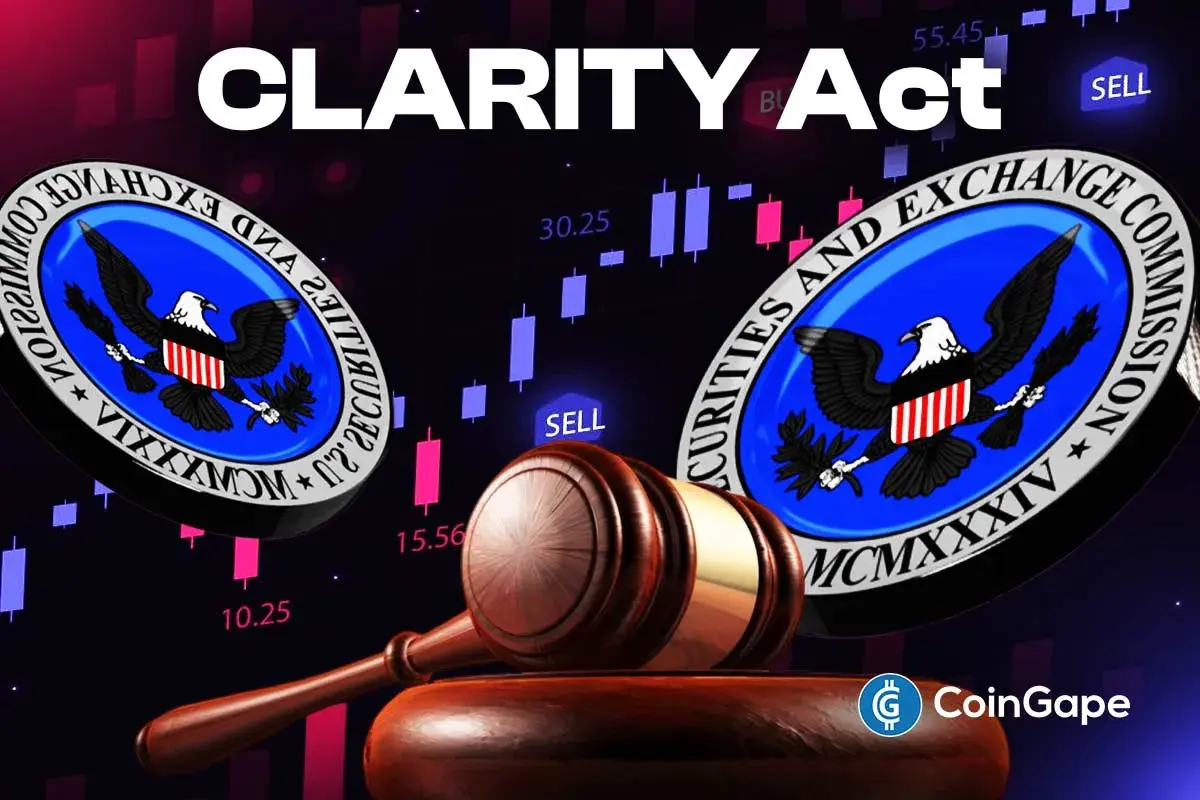Pro-Crypto Rep Tom Emmer Unveils New Blockchain Bill To Protect Developers

Highlights
- Reps Tom Emmer and Ritchie Torres have re-introduced the BRCA Bill
- If passed, developers in the US will be shielded from being tagged as money transmitters
- More crypto focused bills are under consideration at the Congressional level including GENIUS Act
The push to advance the digital currency ecosystem has taken a new twist. Reps. Tom Emmer and Ritchie Torres have introduced a new blockchain and crypto regulation bill directed at developers. Dubbed the Blockchain Regulatory Certainty Act (BRCA), this bill is the second time it will be introduced in Congress and clarifies the definition of money transmitters, which concerns developers.
The BRCA Blockchain Bill: Key Highlight
This bill aims to establish that developers who do not custody user funds are not money transmitters. Notably, it provides the necessary legal clarity to position the United States as the top hub for developers.
“If you don’t custody consumer funds, you aren’t a money transmitter. Plain and simple,” Congressman Emmer said in an official statement. “The longer we delay this commonsense clarification, the greater the risk that this transformative technology is pushed overseas, harming American investors and innovators.”
Providing more context, the lawmaker noted that without blockchain bills like this, the US risks losing its developers. It is worth noting that the regulations that money transmitters are expected to adhere to are generally higher. The lawmakers argue that these are not ideal demands to place on open-source developers.
The Blockchain Bill has gained massive support from top industry advocacy groups, including the Blockchain Association. While it is required to combat party divisions in Washington, D.C., its passage will add to the current bills designed to advance crypto regulation in the country.
Crypto Regulation From the Stablecoin Lens
Beyond the push for developers to have an enabling environment to pursue innovation, Congress is considering top bills to drive regulations in the country. The popular stablecoin bill, the GENIUS Act, passed the immediate Cloture vote earlier this week.
While it has yet to pass all formal voting stages by the lawmakers, many expect the country to make history with this bill. Other bills include the Bitcoin Act Bill introduced by Sen Cynthia Lummis.
This bill was designed to back the national crypto reserve established via an Executive Order signed by President Donald Trump. In addition to this bill, the STABLE Act establishes the requirements for payment in stablecoin in the country.
Although most blockchain bills targeting crypto regulations at the federal level have yet to be passed, the current outlook hints at big progress.
States Taking The Lead
As reported earlier by CoinGape, the Texas Senate has passed the Bitcoin reserve bill. As the third State in the country to do so, the SB-21 bill is now one step away from becoming law.
Barring any complications, Governor Greg Abbott will most likely append his signature, considering his pro-crypto nature.
Despite the positive shift in the crypto regulatory trend in the United States, some states like Florida have refused to invest in BTC with public funds.
Play 10,000+ Casino Games at BC Game with Ease
- Instant Deposits And Withdrawals
- Crypto Casino And Sports Betting
- Exclusive Bonuses And Rewards

- Ripple Bets On AI Boom With Strategic Investment In AI Agent Infrastructure Startup
- Prediction Market News: Kalshi Fines MrBeast Associate Over Insider Trading Amid State Crackdown
- CLARITY Act: Banks, Crypto Yet To Agree On New Crypto Bill Draft As March 1 Deadline Looms
- Michael Saylor Predicts $50T From Bonds Could Flow Into Bitcoin Ecosystem as Digital Credit Evolves
- Bitcoin Treasury Firm GD Culture Authorizes Sale of 7,500 BTC as Expert Warns Of More ‘Pain’
- Dogecoin, Cardano, and Chainlink Price Prediction As Crypto Market Rebounds
- Will Solana Price Rally to $100 If Bitcoin Reclaims $72K?
- XRP Price Eye $2 Rebound as On-Chain Data Signals Massive Whale Accumulation
- Ethereum Price Reclaims $2K- New Rally Ahead or a Temporary Bounce?
- COIN Stock Price Prediction as Wall Street Pros Forecast a 62% Surge
- Cardano Price Signals Rebound as Whales Accumulate 819M ADA

 Buy Presale
Buy Presale

















